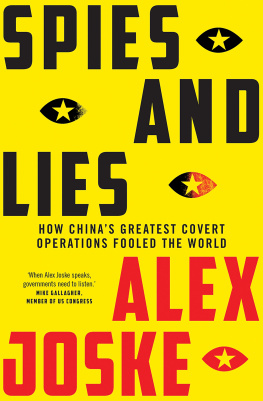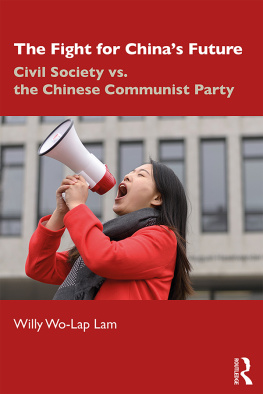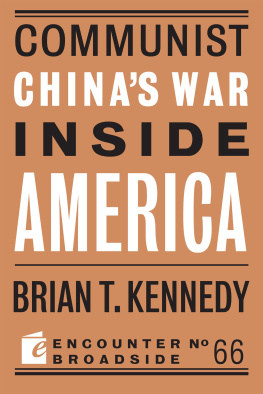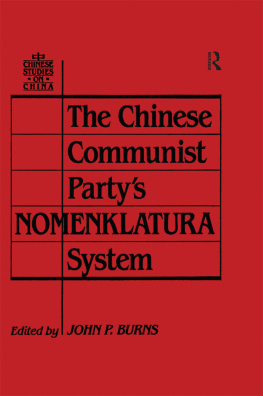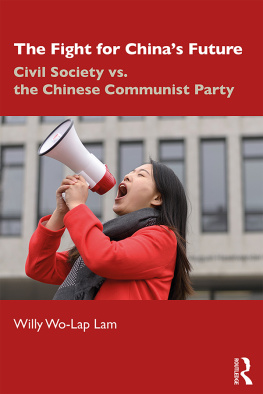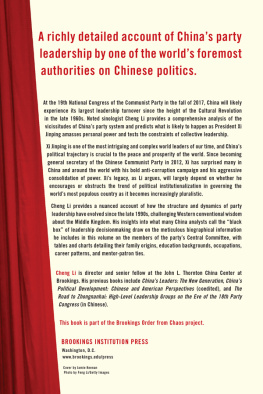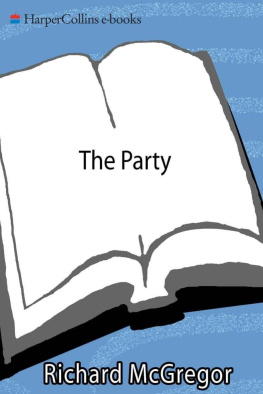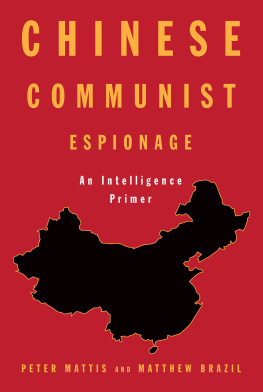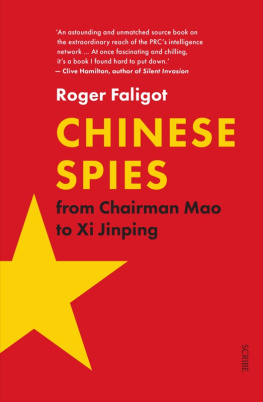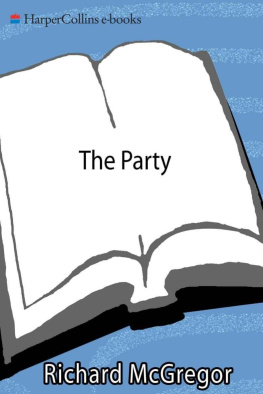
LIANG HENG PUT on his navy-blue Mao jacket and threw a Chinese Serve the People satchel over his shoulder as he walked onto the streets of New York. It was 1984, and ever since the publication of his memoir hed been run off his feet giving talks and interviews while trying to finish graduate studies at Columbia University.
Liangs Son of the Revolution was a bestselling personal account of a China that had only just reopened to the West. It revealed how his family suffered in the Anti-Rightist Movement of the late 1950s, shortly before the country was plunged into famine by the Great Leap Forward. Liang was forced to forage for edible weeds in a local park. At twelve, he was swept up in the Cultural Revolution as one of millions of Red Guards and journeyed to Beijing to witness Chairman Mao Zedong in the flesh.
Most importantly, Son of the Revolution brought Liang to the attention of George Soros, the billionaire investor. With their shared vision of a more liberal and open China, the pair boldly worked with reformists inside the Party to shape the nations future, only to meet a catastrophic end courtesy of the MSS. It was the first in a long series of efforts by the intelligence agency to manipulate foreign elites, turning their hopes for China into tools for influencing and infiltrating the West.
George Soros read Liangs memoir and reached out to the publisher. He wanted to meet the author himself. A businessman? Im flat-out every day. Why should I see this businessman? Liang thought. He hadnt heard of Soros before but agreed to the meeting anyway. Now he was on his way.
They met for lunch at an upmarket French restaurant where Soros was a regular and had his own private booth. After nearly two hours of discussion about Liangs life, Soros began explaining his own philosophy and political work. His attention was increasingly focused on supporting liberal and progressive political causes in communist countries. Just that year hed established his first open society foundation in his country of birth, Hungary. The foundation partnered with the Hungarian Academy of Sciences and pushed boundaries behind the iron curtain, funding projects on issues as diverse as Western economic thinking to the plight of the Roma Gypsies. I got hooked on what I like to call political philanthropy, Soros later explained.
Over cheeses and fruit, Soros finally got to the point. Does the China of today have opportunities for you to do something for it? he asked Liang.
Liang believed they were at a key juncture in Chinese history, one that he wanted to take part in. He wanted to turn what hed learnt through years of hardship during the Great Leap Forward and Cultural Revolution into something positive. At the time, he was preparing to set up a magazine for overseas Chinese intellectuals, but much more could be done. Liang, said Soros, I support what you want to do. I also feel that China is undergoing great changes, and these changes will influence the whole world.
Then and there, Liang agreed to work as Soross advisor, helping him explore opportunities in China to replicate his efforts in Hungary by also setting up a foundation there.
Soros needed partners in China he could trust. Out of all the officials and organs of the Chinese government (for no entirely independent institutions existed at the time), he needed Liang to find the right ones to back, those who both believed in his vision and had the political power to see it realised.
It was no easy task that Soros had given Liang. Neither fully understood the monumental political struggles they were about to find themselves in the middle of.
The China Fund
The kind of funding and opportunities Soros promised were almost unheard of in China, and it wasnt long before Liang secured introductions to reformist circles. Respected and politically connected economists like He Weiling and Zhu Jiaming (a friend of future vice president Wang Qishan) were eager to take part in the project. With Soross backing, Liang also met with a senior Party official to explain Soross work and his idea of establishing a foundation to promote reform and opening.
The key was to find a local Chinese partner institution, a requirement of operating in China, and Liang quickly made the right connections. Scholars from the Economic System Reform Institute (ESRI), a hub of progressive thinking backed by segments of the Party leadership, convinced their bosses to team up with Soros.
Soross excitement was shared by the economists of the ESRI. A trip to Hungary, funded by Soros, electrified these young thinkers as they attempted to carve a new path for China in the wake of the Cultural Revolution. Many were travelling abroad for the first time. Their conversations with Hungarian economists, who were wrangling with similar puzzles of taxation, market competition and private enterprise, were like a chemical reaction so inspiring, said one participant. The visit helped drive the confidence and creativity of Chinese reformists, spurring forward their advocacy of economic reforms, he said. Maybe too fast.
In October 1986, Soros travelled to China for the first time to formally open the China Fund in a signing ceremony at Beijings Diaoyutai State Guesthouse. The ESRI was close to the reformist premier Zhao Ziyang, who became the Partys general secretary the next year, and Zhaos personal secretary, Bao Tong, cut through red tape to champion the joint venture.
The China Funds achievements were impressive. Soros afforded Liang and his staff in Beijing a great deal of autonomy as they worked through the growing mass of funding applications that arrived in the cramped courtyard house they used as an office. Within a year of its establishment, the foundation had set up an artists club in Beijing and an academic salon at the prestigious Nankai University in Tianjin, supported the study of folk art in the Yellow River basin, and backed research on Thailands efforts to attract foreign investment and on Bostons high-tech industry.
The end of optimism
Almost as soon as it emerged, the China Fund ran into a challenge that proved fatal. General Secretary Zhao Ziyangs aide had made a dangerous political gamble by backing the venture. Bao Tong was hated by many, said one former Chinese government economist.
In the face of complaints from Party elders about the China Fund, Zhao Ziyang ceded its control to new management. It wasnt a fight he wanted to pick, nor one he could dare to. Zhao agreed to sever ties between the ESRI and the China Fund, bringing in the China International Culture Exchange Center (CICEC), a group under the Ministry of Culture, as its new partner institution.
By the time this decision had been made, neither Soros or Liang had even met with representatives of CICEC. The ESRIs director quickly arranged a meeting between Liang and the head of CICEC, Vice Minister Yu Enguang. Yu quickly convinced him of the merits of this new arrangement and told him he believed in the importance of friends like Soros who could support Chinas modernisation. Once I heard about this plan, I understood that at the time there was no other choice, Liang reflected. They had to agree to work with CICEC if they were to survive.
Soros took these changes in his stride, accepting some degree of political interference as a necessary compromise when operating in China. In February 1988 he travelled to Beijing to reconfirm his commitment to bankroll the foundation and sign a revised agreement with Yu Enguang, his new Chinese co-chair. As Xinhua News Agency reported at the time, academic research on reform and opening, and funding activities by non-governmental organisations remained priorities for the China Fund. The article described Soros as a friendly American figure, perhaps a rung below the coveted title of old friend of the Chinese people, a term used by the Party to recognise foreigners whove made major contributions to its efforts.
Next page
